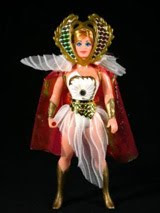
What a cool idea for a book! So often we (as educators) want to know about the teachers perspective... How did they teach to get the "desired result?" But this book brought up a whole new realm of questions for me... How do children think and learn? How do they interact with what they are taught? I would be interested in hearing more about the child's perspective - not just in writing, but in many other academic situations. For instance, what is going on inside the child's minds who have to go to school in temporary trailers that are decrepit and disintegrating around them? What is going on in the minds of children who attend schools thatdon't have enough funding to buy adequate materials? How does their vision of school and learning compare to the vision of the children who attend state-of-the-art facilities with every amenity and resource at their finger tips? Just one of many thoughts that arose in my own mind as I read about Jack and how he learned to open up to the world of poetry in his own school experience. I wish more authors would attempt to write through the child. I think that we have a lot to learn about how children FEEL in their learning environments.
Jack warms up to the ideas that are mingling in his mind, we see him transform into a more confident writer and reader of poetry. At first he is unable to claim his work, he is self-conscious about what others may say or how his work may be judged by his peers. I like Mrs. Stretchberry's approach to this ownership dilemma. She gives Jack time to develop his confidence and eventually he begins to own his work, he even likes to see it displayed on the board.
It's neat how Creech addresses the "loss of the dog" - in fact this, along with the inspiration from Walter Dean Myers, is what initially sparked Jack's interest in poetry. This shows us how poetry can potentially be a valuable tool for getting kids to start expressing themselves with words. The BIGGEST thing that I learned from reading this story, is that teachers need to dig deeper into the thoughts of their learners to help them through their process of thinking.
On last note: I read the excerpt from Creech's sequel Hate That Cat that was in the back of the book. We see how outside influences can diminish and support a child's writing at the same time. His uncle tells him that his writing is not actually poetry, that it needs these other fancy elements... this works as a segue into many other learning agendas.


No comments:
Post a Comment